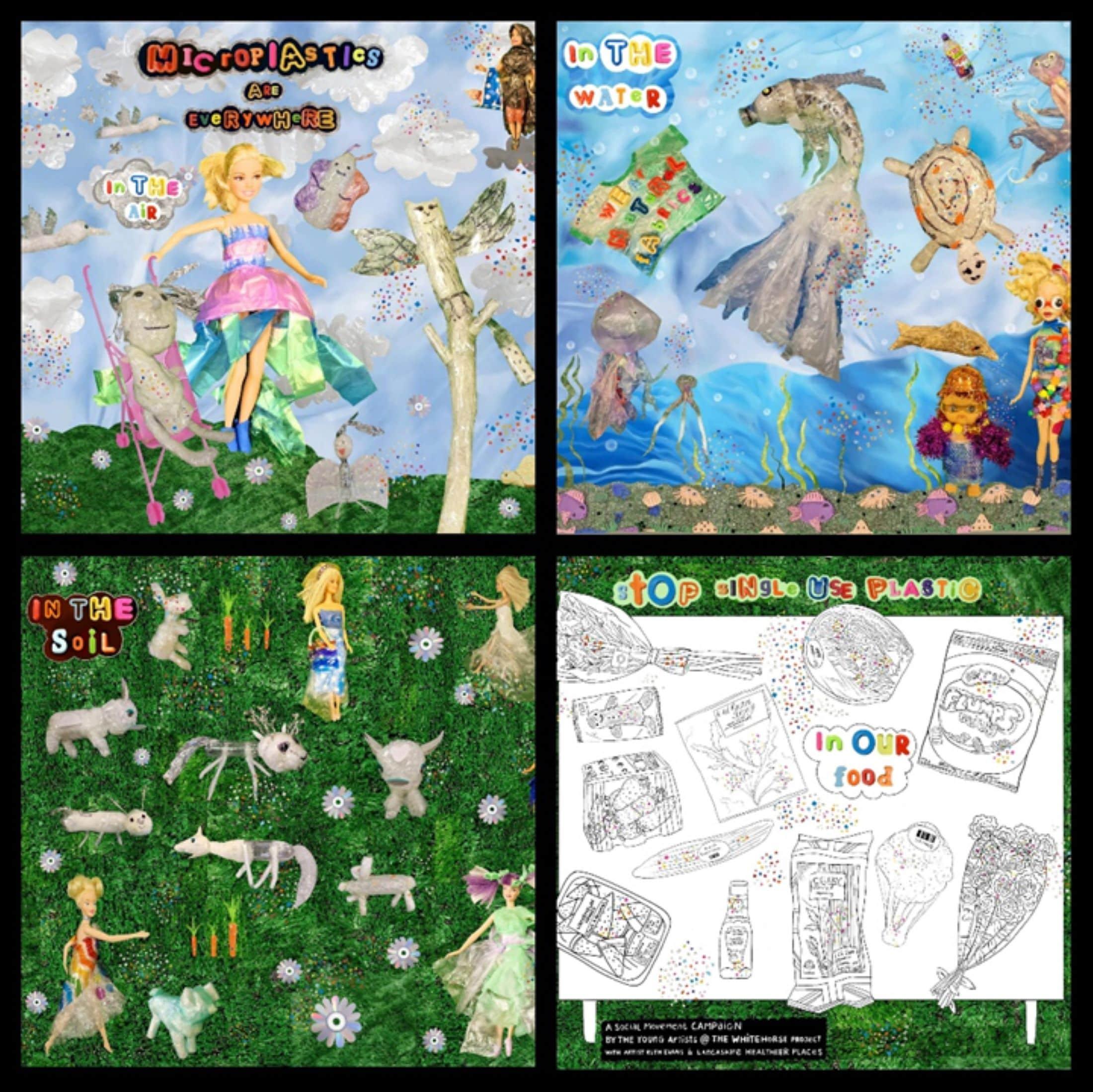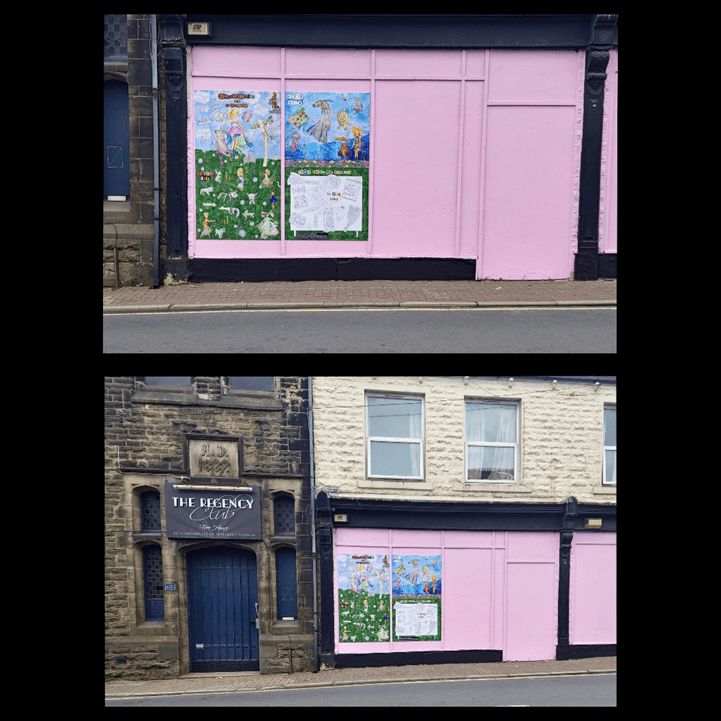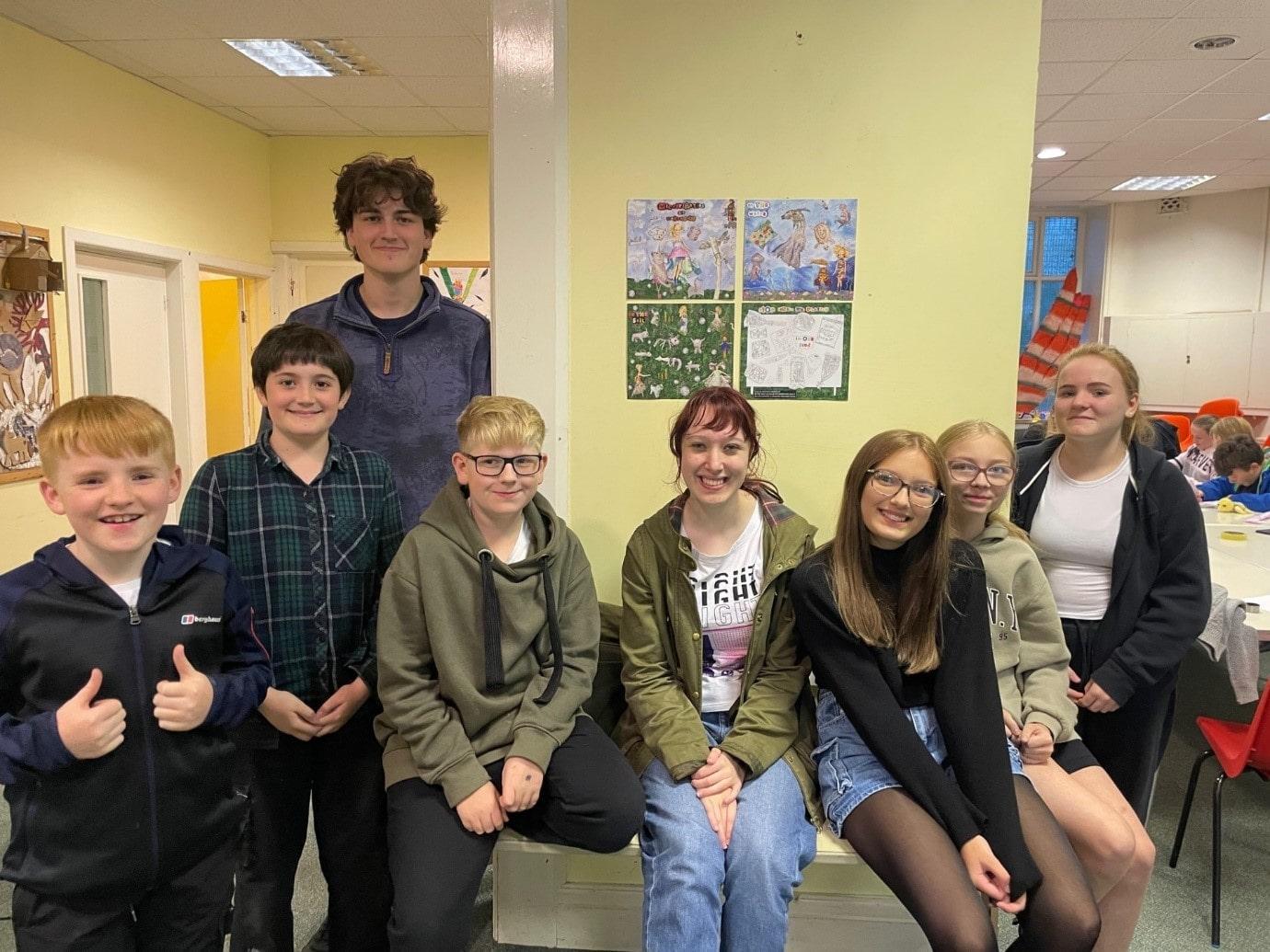
A series of Social Movement Campaigns have been running across the borough. The campaigns aim to offer a voice for young people to demand healthier environments and to drive forward change.
Week 1: The group researched and discussed how micro plastics impact the environment and our health and practiced drawing different foods whilst talking as a group about favourite meals.
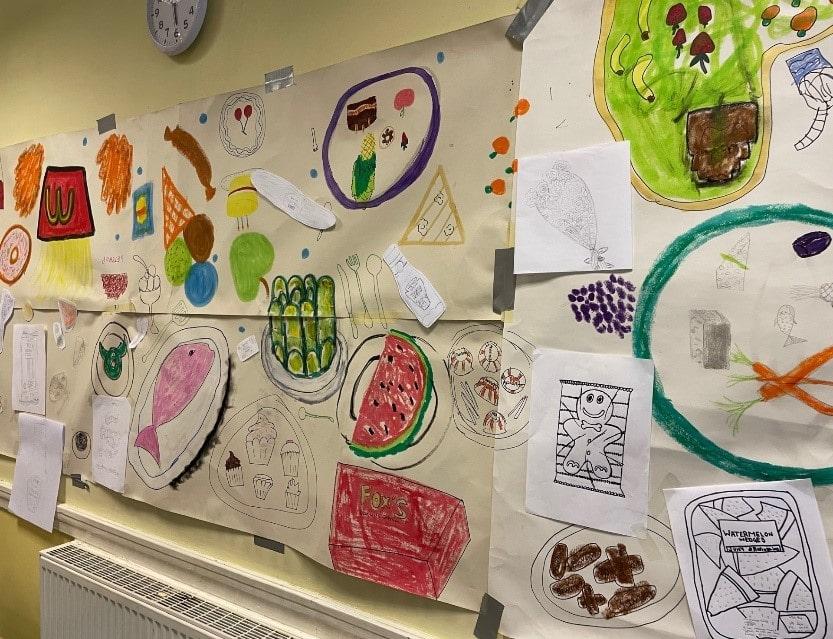
Week 2 & 3: Ruth brought different fresh foods wrapped in plastics to the group, they debated if it was needed and explored what the term ‘single use’ plastic meant. The group then drew the different items wrapped in plastic, which were transposed onto the final artwork. At the end of the session, the group ate the foods (fruits and vegetables) and discussed how they may be consuming micro plastics even in healthy foods.
The group explored making animal sculptures out of recycled plastic, using them to represent animals in the food chain and also wild animals and pets.
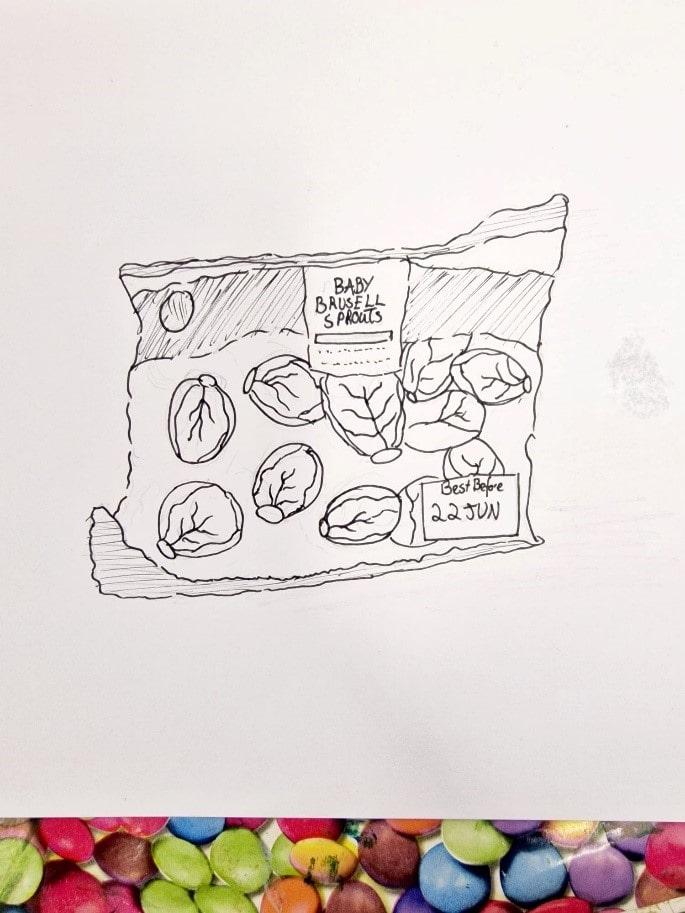
Week 4, 5 & 6: The group continued with the recycled plastic sculptures and photographed the finished work on a mat of plastic grass, to build a plastic world.
The group began to arrange the artwork onto the final piece and discussed what else was needed. Plastic dolls were dressed using recycled plastic and photographed to add to the final piece. This activity led to a discussion about the issues of fast fashion. The group also used recycled plastic letters to make sentences for the final piece. The final development session involved the group finalising the artwork, ready to be displayed in Waterfoot.
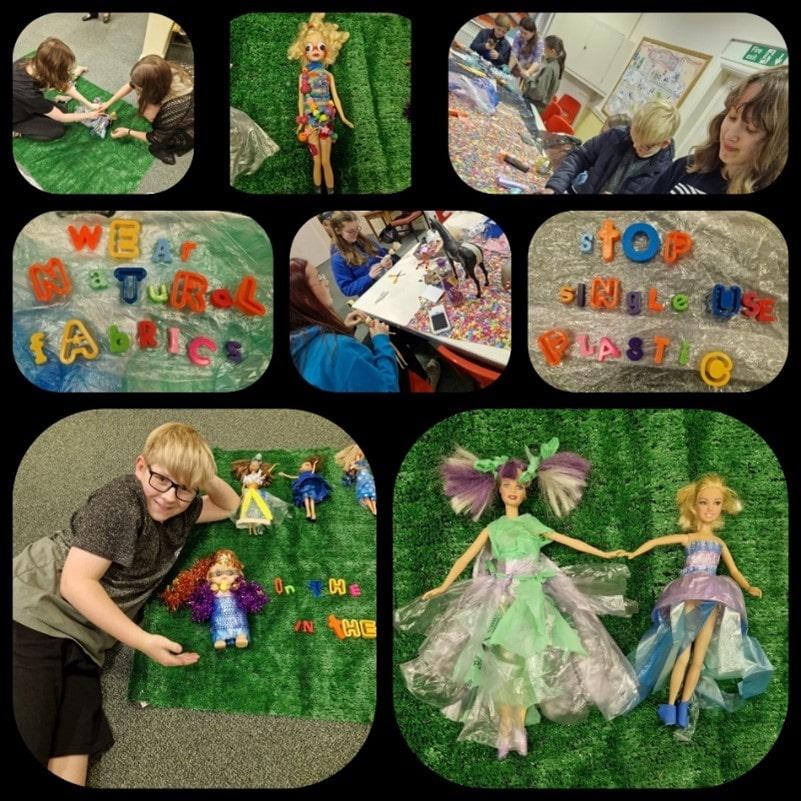
On September 11th, the group showcased the artwork they had created for their Social Movement Campaign ‘Micro Plastics’, which was attended by Stephanie Thornton, Rossendale Community Policy Officer, Councillor Annie McMahon, Councillor Nick Harris and Councillor Tom Belli.
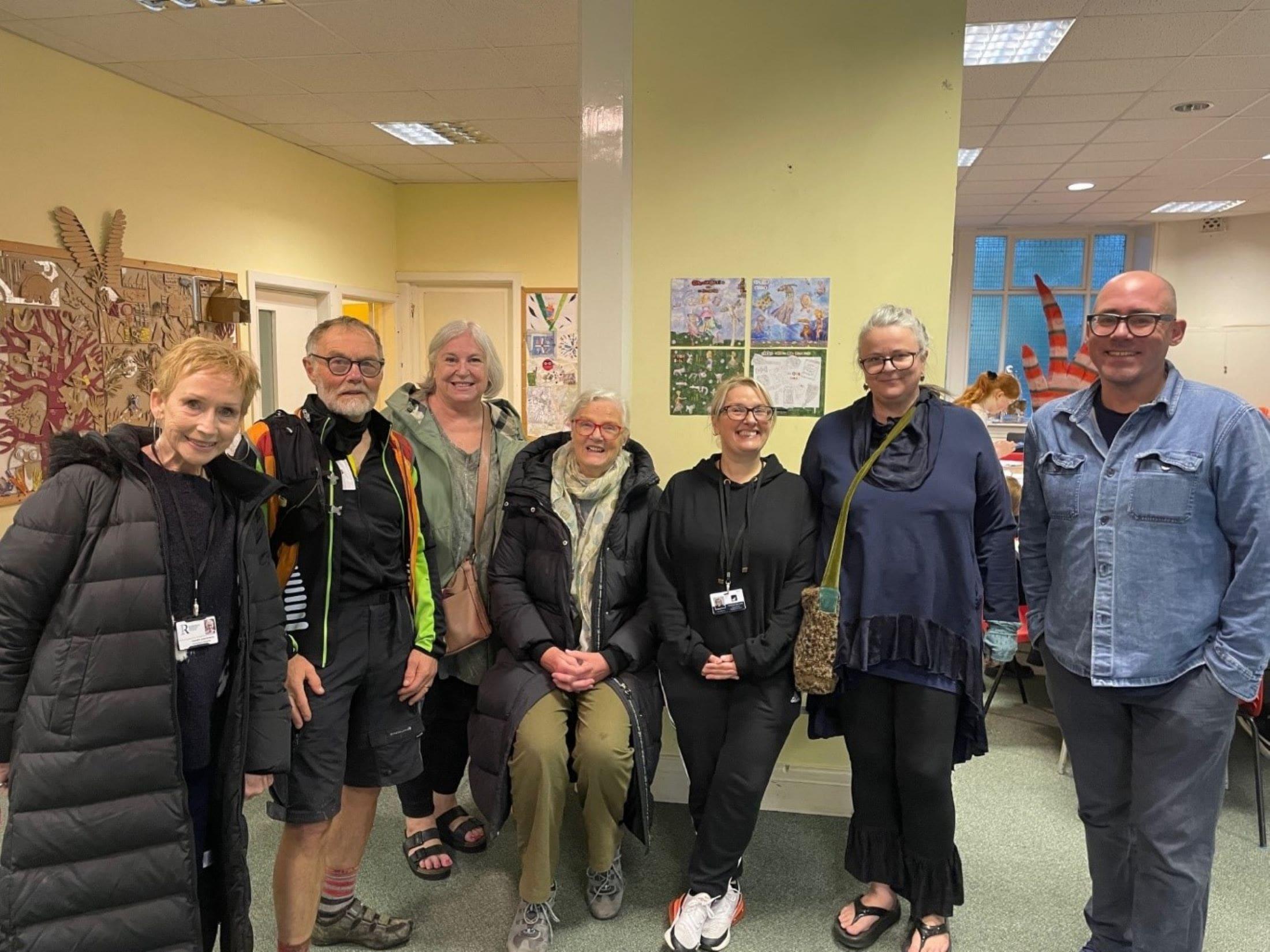
Ruth led members around each art station, explaining what was explored in each session, before revealing a copy of the final piece of artwork.
The young people asked the councillors what they can do about micro plastics, and how they could influence the council to make changes in the community. The issue of fruit and vegetables wrapped in plastic and the use of plastic bags was raised. Councillor Annie McMahon of Hareholme and Waterfoot encouraged the group to send their request to the council, and said she will take their questions to RBC Chief Executive and all Rossendale councillors.
Campaign call to action: Ban single use plastics and stop pollution of our air, soil, waters and food with microplastics. Individually, we can all cut down on our use of plastics – we can avoid foods which come wrapped in plastic or in plastic containers and use reusable plastic bags. As a group, we have decided to change the snacks we have at the end of the session to fruit that does not come wrapped in any packaging, for example, melon or pineapple, instead of less healthy foods such as crisps and chocolate bars in plastic wrapping.
Thoughts from the young people:
What was your favourite session, and why?
‘Making creatures out of bubble wrap, it really highlighted the problem of microplastics in our environment’
‘I enjoyed drawing different food, especially the vegetables’
What is one thing you have learnt during the campaign?
‘I learnt that microplastics are everywhere, including our food’
‘It is not too difficult to cut down on single use plastics – the consequences of using them are worse than I thought’
Do you think exploring issues like this through art is effective, and why?
‘Yes – young people find it easier to learn through practical and creative activities, rather than just being told’
‘Yes – if you are having fun, you will remember what you have learnt. Now when I go to the shops, I feel challenged to reuse my bags and try to avoid single use plastics’.
‘Micro-plastics’ displayed on Burnley Road East in the centre of Waterfoot (next to the Hong Kong Chinese Takeaway – make sure to check it out!)
